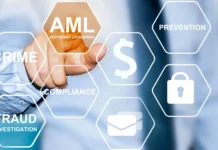In today’s interconnected world, social media has become an integral part of our daily lives, allowing us to connect with friends, share experiences, and access a wealth of information. However, as we immerse ourselves in the digital age, the issue of social media privacy has become increasingly pertinent. With the vast amount of personal data we willingly or unwittingly share online, safeguarding our privacy has never been more critical. This article delves into the complexities of social media privacy, offering insights and strategies to help individuals protect themselves in an era where information is both a commodity and a potential vulnerability.
The rapid growth of the internet and technology has transformed the way we interact, work, and even think. Social media platforms, in particular, have carved out a space that feels like a global meeting point, where diverse cultures intersect and narratives blend. In dynamic cities like Dubai, this phenomenon is especially evident. If you were to walk into any reputed social media agency in Dubai, you’d hear stories of how the city’s vibrant mix of traditions and forward-thinking ethos is mirrored in its online spaces. But this digital transformation also presents a unique set of difficulties.
Our appetite for sharing and connecting online can sometimes make us forget about an essential aspect: privacy. How can we strike a balance between showcasing our lives and experiences, and ensuring our personal data remains secure in this vast digital bazaar? As we dive deeper into the intricacies of social media privacy, we’ll explore ways to navigate this modern landscape while keeping our personal boundaries intact.
Why Worry About Social Media Privacy?
Think about it: Would you give a stranger on the street your home address, birthday, and pictures of your family? Probably not. But, when you share openly on social media, you might be doing just that. Protecting your information helps keep you and your loved ones safe from scams, identity theft, and even potential stalkers.
Easy Steps to Boost Your Privacy
- Check Your Privacy Settings: Almost all social media platforms have privacy settings. Go to the settings section and make sure your account is set to ‘private’ or ‘friends only.’ This way, only people you trust can see your posts.
- Think Before You Share: Before posting anything, ask yourself if you’re comfortable with the whole world knowing about it. If the answer’s no, maybe it’s better kept offline.
- Limit Personal Information: Avoid sharing sensitive details like your home address, phone number, or personal ID numbers. This information can be gold for scammers.
- Be Choosy With Friends: Just because someone sends you a friend request doesn’t mean you have to accept it. Connect only with those you truly know and trust.
- Log Out From Shared Computers: If you use a computer at school, work, or the library, always log out of your social media accounts when you’re done.
What About Those Fun Quizzes and Games?
We’ve all seen them: quizzes that tell you what kind of pizza you are or games that let you build a virtual farm. They seem harmless, but some might be trying to gather your personal data. Before you play or take a quiz, check who made it and what information they’re asking for. If in doubt, skip out!
The Role of Companies
Remember, social media platforms make money by using the data you provide. They might use your likes, shares, and interests to show you specific ads. Reading and understanding a site’s privacy policy is always a good idea. Some sites let you opt out of certain data sharing, so it’s worth checking.
Also Read: A Comprehensive Guide to Instagram’s Feature IG Stories
Beyond the Basics: Delving Deeper into Digital Privacy
Cookies and Trackers: Not Always Sweet
When browsing online, you’ve probably encountered messages about ‘cookies’. These tiny data files save your preferences, making websites easier to use. However, some cookies, known as ‘third-party cookies,’ track your online activity across multiple sites. This tracking shapes your online experience, often without you realizing it. Fortunately, many browsers now offer options to block third-party cookies, ensuring a more private browsing experience.
Encrypted Messaging: A Step Towards Safety
More people are turning to encrypted messaging apps like Signal and Telegram. Unlike standard texting or many popular messaging apps, encrypted messaging ensures that only the sender and receiver can read the message’s content. Even the service provider can’t access it. This level of privacy can be especially crucial when discussing sensitive topics or sharing personal information.
Social Media and Mental Health
While privacy concerns often focus on data and identity, it’s essential not to overlook social media use’s personal and emotional aspects. Being continually plugged in can blur the lines between public and personal spaces. It’s essential to periodically disconnect, reassess your content, and ensure that your social media use aligns with your well-being and mental health.
Virtual Private Networks (VPNs): Your Personal Bodyguard Online
VPNs create a private tunnel for your online activity, hiding it from prying eyes. This can be especially beneficial when using public Wi-Fi networks, which are often less secure. While VPNs offer enhanced privacy, choosing a reputable provider is vital, as some might log your activity.
Taking Control: Digital Detoxes and Data Cleanse
Consider taking a ‘digital detox’ – a dedicated break from social media and other online platforms. This break allows you to disconnect, reflect, and rejuvenate. Coupled with a data cleanse, where you review and remove unnecessary stored personal information, these practices can redefine and refine your digital footprint.
Also Read: Learn Step-by-Step How to Get Verified on Instagram
Final Thoughts About Social Media Privacy
Social media is a fun way to connect with friends, share memories, and even learn new things. But like any tool, it’s essential to use it safely. By being aware and taking some simple precautions, you can enjoy all the benefits of social media without risking your privacy. After all, your personal story is yours to share – on your terms. Navigating the vast realm of social media and the broader digital world can seem daunting. With every click, share, and post, we leave behind digital breadcrumbs. But by arming ourselves with knowledge and tools, we can take control of our online presence. Social media privacy isn’t just about protecting data; it’s about safeguarding our mental space, autonomy, and right to an online existence free from undue influence and surveillance.
If you want to explore more content on this topic, you can also learn about online privacy tools like RedGif.



